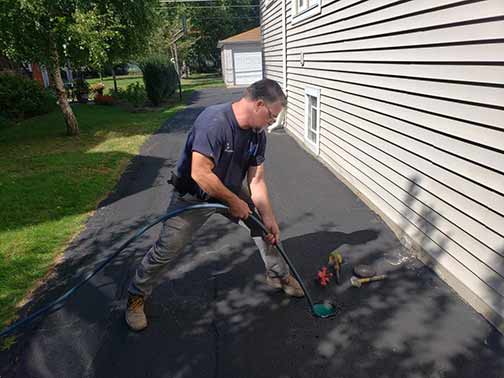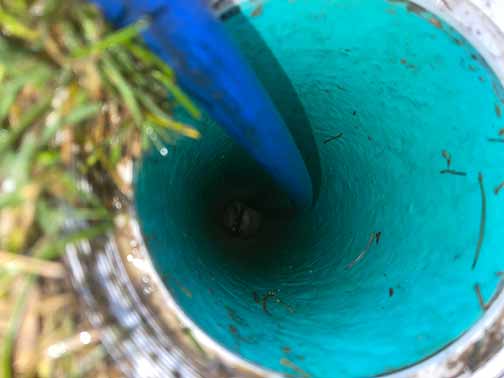Understanding the Importance of a Healthy Sewer Line
A healthy sewer line is a foundational aspect of any home’s plumbing system. For homeowners in Westmont, ensuring the seamless operation of this crucial infrastructure is paramount. A well maintained sewer line effectively carries waste away from the home, ensuring the sanitary conditions integral to a healthy living environment. When functioning correctly, it prevents harmful substances from backing up into the home, safeguarding the inhabitants’ health and comfort.
The sewer system, although often out of sight, plays a vital role in maintaining the structural integrity of your property. Leakage or blockages not only disrupt daily routines but also pose significant risks of water damage, mold growth, and even foundation cracks. Additionally, addressing sewer line issues promptly can result in substantial cost savings by preventing small problems from escalating into major repairs. Therefore, understanding the signs of a healthy versus compromised sewer line is crucial for every homeowner.
Common Causes of Sewer Line Clogs
Understanding what can lead to a clogged sewer line is the first step toward prevention. A variety of factors contribute to this pervasive issue, and being aware of them can help homeowners take appropriate actions to avoid costly and disruptive repairs.
Accumulated Grease and Oils: One of the most common culprits behind clogged sewer lines is the buildup of grease and oils. While it’s easy to pour these substances down the drain, they solidify in the pipes over time, creating blockages that can significantly impede the flow of wastewater.
Tree Roots: The roots of trees and large shrubs can infiltrate sewer lines, particularly if the pipes are older and have existing cracks. These roots grow towards the moisture within the pipes, eventually causing significant damage and blockages.
Non-Flushable Items: Items such as wipes, paper towels, feminine hygiene products, and even certain types of toilet paper can cause clogs when flushed down the toilet. Unlike regular toilet paper, these items don’t break down easily and can accumulate within the sewer line.
Hair: Hair that goes down the bathroom drains can accumulate over time, forming dense clogs that block the sewer line. These clogs are particularly notorious in homes with multiple occupants.
Foreign Objects: Small toys, sanitary items, and other foreign objects flushed down toilets can easily block the narrow pipes of a sewer line, leading to severe blockages.
Key Signs of a Clogged Sewer Line
Recognizing the early warning signs of a clogged sewer line can help homeowners in Westmont take timely action. Here are common indicators of a clogged sewer line that should not be ignored:
Slow Draining Sinks and Bathtubs: If sinks, bathtubs, or showers are slow to drain, it could indicate a blockage forming in the sewer line. While a single fixture draining slowly may point to a localized clog, multiple slow-draining fixtures suggest a more serious issue within the sewer line.
Gurgling Sounds from Drains: Unusual gurgling noises emanating from drains are often a red flag for a clogged sewer line. These sounds occur when air is trapped and forced through the water, signaling that water flow within the pipes is impeded.
Frequent Toilet Backups: Toilets that frequently back up or overflow are a strong indication of a clogged or compromised sewer line. Repeated incidents of toilet clogs point to a blockage deeper in the sewer system.
Unpleasant Odors: Foul smells coming from drains or around the house are a clear sign of a problem. Sewer gases should not be present in a healthy plumbing system, and their presence indicates a break or blockage allowing these gases to escape.
Exterior Water Pooling: If you notice unexplained puddles or wet areas in your yard, it might be due to a sewer line leak. Such leaks often result from blockages that cause the pipes to crack or burst.
Preventive Measures for Sewer Line Health
Prevention is always better than cure, especially when it comes to maintaining the health of your sewer line. By following these preventive measures, homeowners in Westmont can keep their sewer systems in optimal condition:
Proper Disposal of Grease and Oils: Instead of pouring grease or oils down the sink, collect them in a container and dispose of them in the trash. This simple step can prevent the buildup of these substances within your pipes.
Regular Inspections: Periodic inspections by a local plumber in Westmont can help identify potential issues before they become severe. Scheduling annual or bi-annual check-ups can keep your sewer line in good working condition.
Installing a Backwater Valve: A backwater valve can prevent sewage from backing up into your home during heavy rains or sewer system overloads. This device is particularly useful in areas prone to flooding.
Root Barriers: Installing root barriers can prevent tree roots from infiltrating your sewer lines. Consulting with a plumbing professional will help determine the best type of root barrier for your property.
Mindful Flushing: Educate your household about what can and cannot be flushed down the toilet. Avoid flushing items like wipes, paper towels, diapers, and other non-disintegrating materials.

Professional Help and When to Seek It
While some sewer line maintenance tasks can be handled by homeowners, others require professional intervention. Knowing when to call a Westmont plumber is crucial to prevent minor issues from escalating into major problems.
Persistent and Worsening Clogs: If you’ve tried to clear a clog with no success, or if it keeps recurring, it’s time to call a professional. Persistent clogs may indicate a more serious underlying issue that needs expert attention.
Foul Odors: The presence of persistent foul odors from your drains or around your home often requires immediate professional evaluation. These smells indicate that there may be a crack or a significant blockage in the sewer line.
Visible Water Damage: Signs of water damage such as wet spots on walls, ceilings, or floors, or unexpected lush patches in your yard could signal a leaking sewer line. Professional assessment is necessary to prevent extensive property damage.
Outdated or Damaged Sewer Lines: Homes with older plumbing systems or visible damage to pipes should have their sewer lines camera inspected by a professional. Replacing outdated pipes can prevent future blockages and leaks.
Regular Maintenance: Scheduling regular maintenance with a Westmont area plumber can help keep your sewer lines in top shape. These experts can use specialized techniques such as hydro jetting to thoroughly clean your pipes, preventing problems before they arise.
In summary, maintaining the health of your sewer line is essential for ensuring the overall wellbeing of your home and family. By understanding the importance of a healthy sewer line, recognizing the signs of clogs, taking preventive measures, and knowing when to seek professional help, homeowners in Westmont can keep their plumbing systems running smoothly.
—
Is your sewer line clogged or are you need of drain cleaning services in the Westmont, IL area? We can help! Call us at 708-801-6530 or reach out via the form below:
[gravityform id=”1″]


